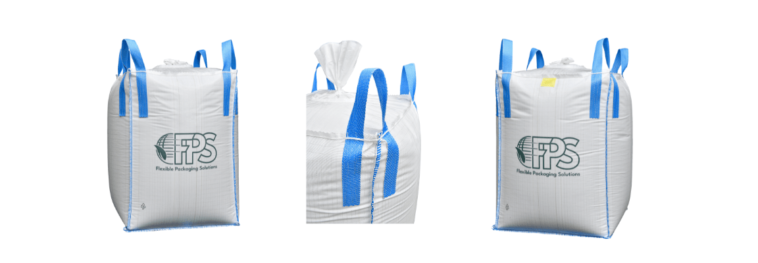In industries such as agriculture, construction, and chemical manufacturing, managing large quantities of materials efficiently and safely is essential. That’s where bulk bag suppliers and FIBC bag manufacturers come into play. These suppliers provide the reliable, durable, and flexible intermediate bulk containers (FIBCs) that industries depend on for storing and transporting products like sand, grain, chemicals, and more.
What are bulk bags?
Bulk bags, also known as FIBCs (Flexible Intermediate Bulk Containers), are large, industrial-grade bags made from durable woven polypropylene. These bags are designed to hold and transport materials in bulk quantities, offering a more cost-effective and eco-friendly alternative to traditional packaging methods.
The versatility of bulk bags makes them ideal for industries ranging from agriculture to mining. Depending on the use case, these bags can carry materials ranging from fine powders to larger, coarser aggregates.
Why choose FIBC bags?
-
Durability:
-
Customization:
-
Cost-effectiveness:
-
Eco-friendly:
FIBC bags are built to withstand heavy loads and harsh environments. Manufacturers, like those at FPS, design these bags to handle thousands of pounds of material without tearing or breaking.
One of the standout features of bulk bag suppliers is the ability to customize the bags based on specific industrial needs. Whether you need UV protection, coated fabrics, or special linings, suppliers can create bags that meet your exact requirements.
FIBC bags are a cost-effective solution compared to rigid containers or drums. Their lightweight design reduces shipping costs while still providing a reliable means of transportation and storage.
Many FIBC bags are designed to be reusable and recyclable, which helps companies reduce their carbon footprint. Working with responsible bulk bag suppliers ensures you’re getting a product that supports sustainability efforts.
Finding the right bulk bag suppliers
When it comes to sourcing bulk bags, partnering with trusted and experienced suppliers like FPS is crucial. Here are some key factors to consider when choosing a supplier:
-
Reputation and experience:
-
Customization capabilities:
-
Compliance with industry standards:
-
Support and logistics:
A well-established supplier brings industry knowledge and can offer guidance on selecting the right type of bag for your specific needs.
Not all products or materials are the same, so your bag shouldn’t be either. Look for suppliers that offer customizable options, such as bag size, fabric type, and handling features.
Ensure that your bulk bag supplier meets relevant safety and quality standards, particularly if you are handling hazardous materials. Compliance with UN regulations for hazardous material handling is often critical in specific industries.
Reliable suppliers provide full-service solutions, from design and manufacturing to logistics support. This helps streamline your operations and ensures that your bulk bags are delivered on time.
FIBC bag manufacturers: A closer look
The role of fibc bag manufacturers goes beyond simply producing the bags. Leading manufacturers, such as those highlighted by FPS, invest in research and development to create stronger, more durable, and more flexible bulk bags.
Manufacturers also focus on:
-
Quality Assurance:
-
Innovative Designs:
-
Sustainability Practices:
Rigorous testing ensures that the bags can handle the weight and conditions they’re designed for.
Manufacturers offer features like baffles for improved stability and discharge spouts for easy emptying.
Many manufacturers use eco-friendly processes and materials, helping reduce the environmental impact of bulk packaging.
Applications of bulk bags in various industries
-
Agriculture:
-
Construction:
-
Chemicals and Pharmaceuticals:
-
Food Industry:
Farmers use bulk bags to transport grains, seeds, and fertilizers. FIBC bags offer a moisture-resistant and UV-protected solution, safeguarding agricultural products during long storage periods.
Bulk bags are used to move heavy construction materials like sand, gravel, and cement. The sturdy construction of these bags ensures they can handle rough materials without breaking.
FIBC bags are designed to meet safety standards for hazardous and sensitive materials. With anti-static options, these bags are ideal for transporting chemicals and pharmaceuticals safely.
FIBC bags are also used in the food industry to transport large quantities of sugar, salt, and other food products. Food-grade bulk bags are manufactured in clean environments and meet food safety standards.
Conclusion
Bulk bags and FIBC bag manufacturers play a critical role in industries that require safe, efficient, and large-scale transportation of goods. By choosing reliable bulk bag suppliers like FPS, companies can ensure that they are getting high-quality, customizable solutions that meet their needs, while also promoting sustainability. Whether you’re in agriculture, construction, or chemicals, bulk bags provide the flexibility, durability, and cost savings necessary to maintain a competitive edge in the market.
For more information on how bulk bag solutions can benefit your industry, visit FPS’s blog on large bulk bags.




GIPHY App Key not set. Please check settings